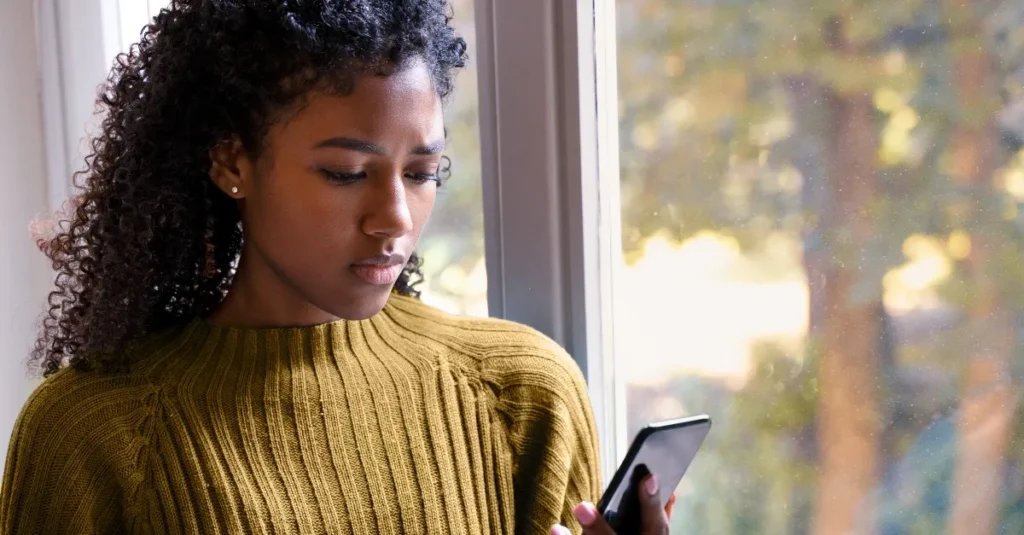Do you think you have anxiety every time you enter into a new relationship? Are you interested in knowing the signs of new relationship anxiety? Here, we will help you know the signs that you have new relationship anxiety and how you can deal with it.

Starting a new relationship is exciting, but it can also bring a wave of anxiety as you navigate uncharted emotional territory.
Worrying about being good enough, overthinking your partner’s actions, or fearing rejection are common signs of new relationship anxiety. While some nervousness is natural, excessive anxiety can prevent you from fully enjoying the connection.
In this article, we’ll explore the key signs of new relationship anxiety, why it happens, and how to manage these feelings to build a healthy, thriving partnership.
Signs of New Relationship Anxiety

Here are signs that suggest you have new relationship anxiety:
1. Overanalyzing Every Interaction
In the early stages of a relationship, overanalyzing is a common sign of anxiety. You might replay conversations in your mind, scrutinize their tone in texts, or worry about how your actions were perceived.
Even small details, like how quickly they responded to a message, can leave you questioning their interest. This overthinking stems from a desire for validation and a fear of missteps.
Although it’s natural to care about making a good impression, excessive analysis can create unnecessary stress. Instead, try to focus on being present and trusting that healthy relationships evolve naturally without constant dissection of every interaction.
2. Fear of Saying the Wrong Thing
New relationship anxiety often brings a fear of expressing yourself authentically. You might hesitate to share your feelings or opinions, worrying that you’ll say something that could scare them off. This fear can lead to self-censorship, which may prevent meaningful connection.
Over time, this restraint might leave you feeling unfulfilled or misunderstood. Remember, open communication is the foundation of healthy relationships. Practicing honesty and embracing imperfections will allow your partner to appreciate the real you, fostering a deeper bond.
3. Constant Need for Reassurance
Seeking validation frequently is another sign of anxiety. You may find yourself repeatedly asking if your partner likes you, if you’re doing things right, or if they see a future together.
This constant need for reassurance can strain the relationship, as it places pressure on your partner to continually prove their feelings. Instead, focus on building self-confidence and trusting their actions.
A partner who genuinely cares will show their commitment through consistent behavior, reducing the need for verbal affirmation.
4. Doubting Their Intentions
Questioning your partner’s motives or feelings is a hallmark of new relationship anxiety. You might suspect they aren’t as invested or wonder if they’re seeing someone else.
These doubts often stem from past experiences or personal insecurities rather than their actual behavior.
While it’s important to remain aware of red flags, excessive suspicion can undermine trust. Open communication and giving the relationship time to develop will help you gauge their intentions more accurately.
5. Constantly Avoiding Vulnerability
Fear of rejection often causes people to withhold emotions in a new relationship. You might avoid sharing personal stories, feelings, or thoughts, worried that opening up could push your partner away. Vulnerability is essential for building trust and connection.
Taking small steps to share more about yourself and observing how your partner responds can gradually ease this fear and strengthen your bond.
6. Reading Too Much Into Small Actions
When you’re anxious, even minor actions like a delayed response to a text or a canceled date, can feel like a sign of disinterest or rejection.
This tendency to overinterpret can create unnecessary tension in the relationship. Most of the time, these actions have reasonable explanations unrelated to you.
Try to give your partner the benefit of the doubt and avoid jumping to conclusions. Open communication can help clarify their intentions and ease your concerns.
7. Comparing the Relationship to Others
New relationship anxiety often leads to comparisons with past relationships or those of friends. You might wonder why your partner doesn’t express their affection the same way your ex did or worry that your relationship isn’t progressing as quickly as others.
These comparisons can create unrealistic expectations and unnecessary pressure. Every relationship is unique, and it’s important to focus on the connection you’re building rather than measuring it against others.
8. Worrying About the Future Too Soon
Anxiety about where the relationship is heading can overshadow the joy of the present moment. You might find yourself overthinking questions like, “Will this last?” or “Do they see a future with me?” even though the relationship is still in its early stages.
While it’s natural to want clarity, obsessing over the future can prevent you from enjoying the journey. Instead, focus on building a strong foundation and let the relationship evolve at its own pace.
9. Feeling Physically Tense
Relationship anxiety often manifests physically. You may experience restlessness, muscle tension, or even stomach discomfort when thinking about your partner or spending time with them. These physical symptoms reflect the emotional stress you’re carrying.
Practicing relaxation techniques, such as deep breathing or mindfulness, can help ease these physical signs of anxiety and make your interactions more enjoyable and comfortable.
10. Fear of Being Hurt
Past experiences or fear of the unknown might lead you to anticipate heartbreak even when there’s no reason to. This defensive mindset can prevent you from fully embracing the joys of a new relationship.
Building trust and focusing on the positive aspects of your connection can help you overcome this fear and fully enjoy the relationship.
In conclusion, reflect on the source of your fears and address any unresolved insecurities. Share your feelings with your partner in a constructive way, and work together to establish trust and mutual understanding.
Related Searches:


